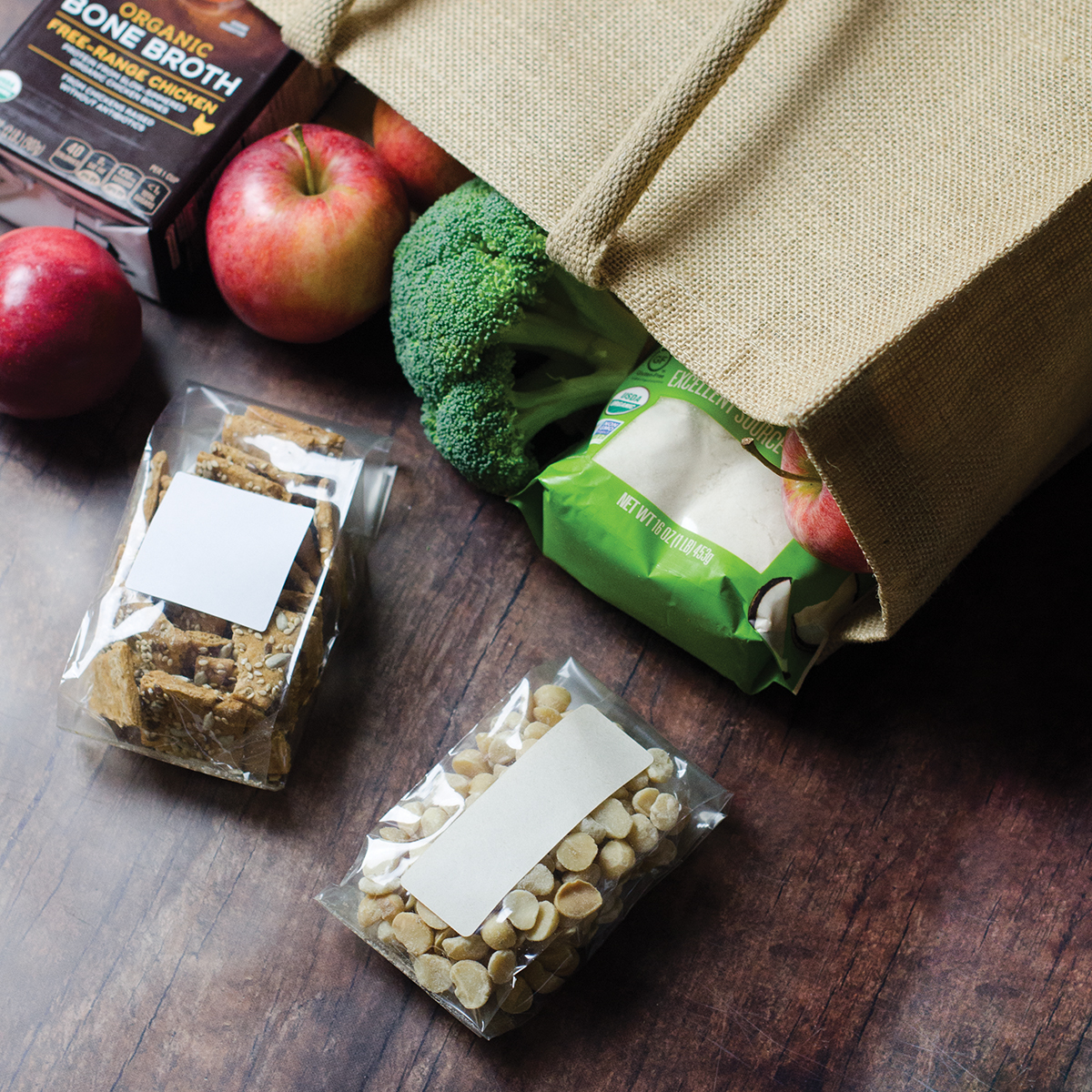Recent Posts
- Home
- Elevate Blog
- Non-GMO Packaging for Organic Brands
Non-GMO Packaging for Organic Brands
Posted by on
If you shop in (or supply to) organic food stores, you’ve most likely seen products labeled “Non-GMO” or “GMO-Free”. GMO ( Genetically Modified Organisms) refers to food that has been artificially altered at the genetic level.
Because GMOs are a relatively new science, the foods altered in this way could potentially contain unknown risks that could affect us and our environment.
Common GMO foods include soy, canola, corn, and sugar beets. The Non-GMO Project website has more information about GMO foods, and they offer the only third party verification and labeling for non-GMO food in the US.
Biodiversity is one of the things put at risk by GMOs - heritage seeds are no longer used, and a cycle of dependence is created on GMO seeds and pesticides (see “ The Environmental Impact of GMOs” from Onegreenplanet.org).
A Seed Savers Exchange is one way that consumers and farmers are fighting back against this potential threat to Biodiversity. A number of producers also focus on regenerative agriculture - “a holistic land management practice that leverages the power of photosynthesis in plants to close the carbon cycle, and build soil health, crop resilience and nutrient density.” (What is Regenerative Agriculture? - Regeneration International) Which, by design, would prohibit the use of GMOs.
A fast growing number of consumers want to see all GMO products labeled, so that they can make an informed choice about the products they buy.
More GMO facts from Whole Foods Market.
How is Packaging affected by GMOs?
So what does all of this have to do with sustainable packaging?
Packaging supplies and other non-food products are not required to be GMO labeled, yet the potential risks with GMOs being used for packaging are just as real and significant!
3 of the top 5 GMO crops are also used to make packaging products: paper made with cotton, ink made with soy, and even some compostable films made from corn (PLA). This should be taken into consideration by sellers of Non-GMO products when choosing their packaging.
In order to avoid packaging made from genetically modified organisms, businesses can choose eco-friendly alternatives such as:
- Compostable cellophane packaging made with wood cellulose from FSC managed forests, as an alternative to PLA.
- PURE Labels made with compostable sugarcane, BioPlastic, or FSC Paper.
- Custom Elevate Packaging, with a wide variety of sustainable solutions.
For more information on how we can help with your sustainable packaging needs, please contact us.
Related Links:
Building Sustainable Communities
 Loading... Please wait...
Loading... Please wait...



